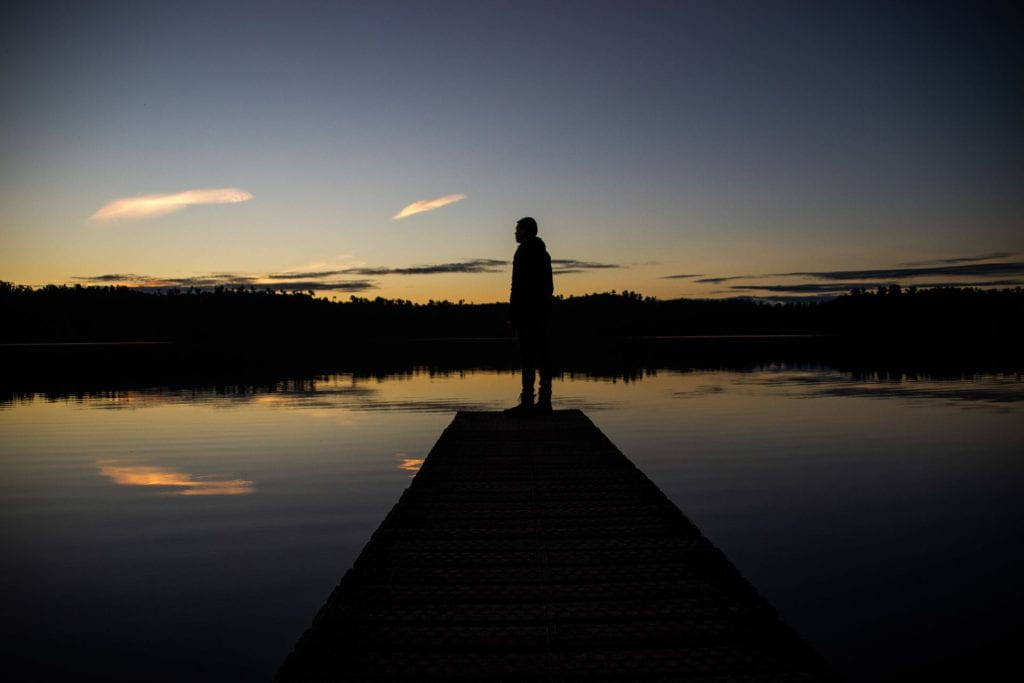
“We have all known the long loneliness and we have learned that the only solution is love and that love comes with community.”[1] – Dorothy Day
November is a month when people of many cultures and traditions celebrate the lives of those who have died. Recently, you may have noticed the many beautiful “ofrendas” or altars set up throughout our campuses to celebrate the lives of those who have gone before us. Indeed, in the Mexican tradition, the “Dia de los Muertos” or “Day of the Dead” is a way of affirming the ongoing presence and spirit of one’s ancestors. Furthermore, at the beginning of November, Catholics all over the world designate All Saints and All Souls Days as a time to go to Mass and pray for the souls of the departed and honor their memory.
One of the greatest privileges of my work in the Division of Mission and Ministry is when I accompany a person who has lost a loved one. Sometimes this involves planning a memorial service, often held on Zoom, where colleagues, friends, and family can come together to pay tribute to the life and living memory of the deceased. People often attend these virtual gatherings with cherished photographs in hand, keen to recall poignant stories or offer funny anecdotes. Favorite songs may be shared, as well as an abundance of prayers and poems. In such emotional and reverential moments, we gather to say, “you matter,” “your life matters,” “your loss matters,” and “your pain matters to me and to us.” While no one can take away the brokenness of a grieving heart, we can certainly walk together and support each other when the journey ahead feels daunting and perhaps even impossible to travel alone. Walking together in love is what Vincentian personalism calls us to do. It is the best of DePaul.
There is certainly no one blueprint to help us navigate the meandering journey of grief. Indeed, we must all forge our own journey along this most human of paths. Yet, at DePaul we understand ourselves to be “a community gathered together for the sake of the mission.” We are a place that offers a deep sense of belonging; a place where we “take care DePaul;” and a place of human flourishing. So, what, beyond individual acts of human kindness, might we do as a community to support those who are recently bereaved?
One November, perhaps over a decade ago, such questions prompted the Division of Mission and Ministry to invite our DePaul community to come together in a show of solidarity and support with those who were grieving among us. We called this event the “Gathering of Remembrance” and it has continued ever since. The Gathering, which is a short interfaith service, invites DePaul to pause and make the world stop for the smallest of moments to remember those who have died. It also serves to assure their loved ones that we are here to walk with them as long as the journey of grief may take. During this short service, we read aloud the names of recently deceased loved ones that a DePaul community member has shared with us, and we call these people to mind in prayer. It is a service that is both beautiful and powerful in its simplicity. We remember those who have died. We honor them, and we let our colleagues and DePaul friends know they are not alone in this journey we call life. We walk together in love and that love is demonstrated through community.
On November 16th at 4:30 pm in the Commons, I would like to invite you to join us for this year’s Gathering of Remembrance. In making this invitation, the words of Dorothy Day resonate deeply within my heart, “We have all known the long loneliness and we have learned that the only solution is love and that love comes with community.”
We hope to see you there, but even if you can’t join us, feel free to send any names of your loved one(s) who have died during the last year that you would like us to remember.
If you would like to attend the Gathering of Remembrance click here to RSVP.
Reflection by: Siobhan O’Donoghue, PhD, Director of Faculty and Staff Engagement, Division of Mission and Ministry
[1] “The Final Word Is Love,” Dorothy Day, 1 February 1952, at: https://catholicworker.org/ddlw-867/.




